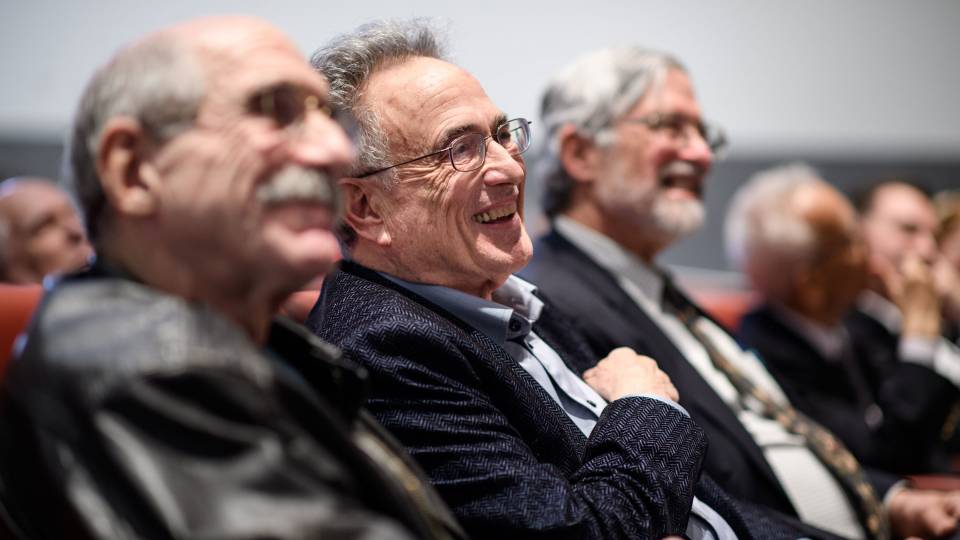Princeton professor Robert Socolow is one of 18 leading thinkers who served on a National Academy of Engineering (NAE) panel that released a report Feb. 15 identifying the greatest technological challenges facing society in this century.
The panel's Grand Challenges of Engineering fall into four key categories: sustainability, health, vulnerability and joy of living.
"Engineering has delivered many successes: our electrified world, indoor plumbing, air travel -- we take these things for granted but we shouldn't," said Socolow, a professor of mechanical and aerospace engineering. "Without investments made by previous generations, we would not enjoy the seemingly invisible infrastructure that makes our modern lives possible. We hope that by identifying these grand challenges we can help spur public debate about the appropriate future goals of humanity and how science and technology can best enable their realization."
Socolow is well known for promoting a multipronged approach to stabilizing the concentration of greenhouse gases and mitigating climate change. Other notable panelists on the NAE committee included Bernadine Healy, former director of the National Institutes of Health; Larry Page, co-founder of Google; Mario Molina, who won the Nobel Prize in chemistry; Wesley Harris, head of the Department of Aeronautics and Astronautics at the Massachusetts Institute of Technology; and Jackie Ying, executive director of the A*STAR Institute of Bioengineering and Nanotechnology in Singapore. Harris and Ying are graduate alumni of Princeton's School of Engineering and Applied Science, and Harris is a member of the school's advisory council.
Former Secretary of Defense William Perry chaired the NAE panel, which released its report in Boston at the national meeting of the American Association for the Advancement of Science.
The committee is asking the public to rank the engineering challenges on its website, where a digital copy of the panel's report can be downloaded. The 14 challenges that the panel identified are
- Engineering better medicines;
- Advancing health informatics;
- Providing access to clean water;
- Providing energy from fusion;
- Making solar energy economical;
- Restoring and improving urban infrastructure;
- Enhancing virtual reality;
- Reverse engineering the brain;
- Exploring natural frontiers;
- Advancing personalized learning;
- Developing carbon sequestration methods;
- Managing the nitrogen cycle;
- Securing cyberspace;
- Preventing nuclear terror.
Socolow noted that the NAE Grand Challenges program is completely separate from a new initiative within Princeton that bears a similar name and with which he also is involved. Princeton Grand Challenges is a joint initiative among the School of Engineering and Applied Science, the Princeton Environmental Institute and the Woodrow Wilson School of Public Affairs. Its goal is to address major societal issues that cannot be solved by a single discipline. Those issues include energy and climate, global health, and sustainable development in Africa. The Princeton initiative also aims to integrate research and teaching across disciplines and across academic levels, from freshman seminars to postdoctoral projects.



